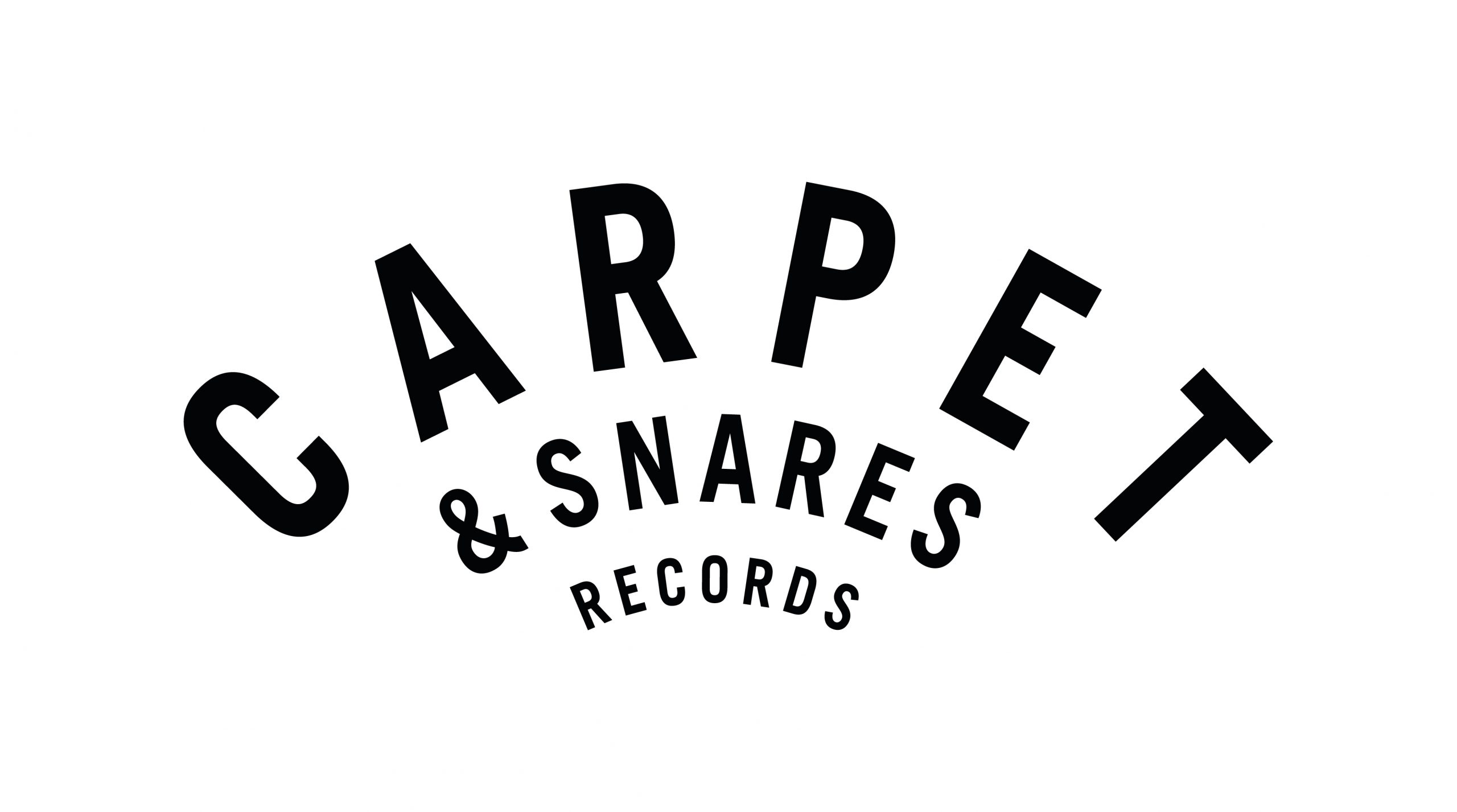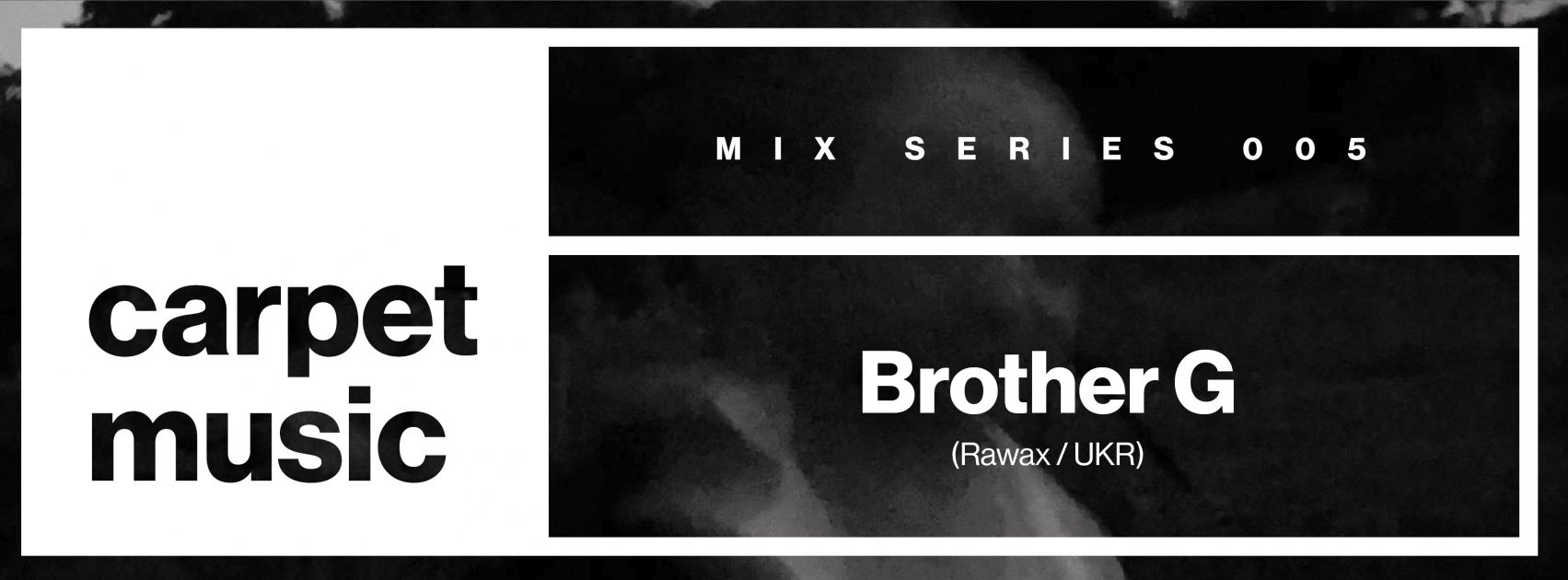Interview by Joe Delon, February 10th 2020
The fifth mix on our series comes from Ukrainian artist and good friend Brother G. Since he came to Portugal to live we’ve had the privilege of befriending him and getting to know more about his music, and one of the next records on Carpet & Snares is his own Medicines EP. Tune in to one hour of groove-laden house and flawless mixing, and read the Q&A below to get know more about the artist.
Q: Your mix for us is very classily mixed – tight and sustained from start to finish. When did you learn to mix and how has your style changed over the years, if at all?
BG: Glad to hear that, thank you! Well, it started at the end of 90’s, I learned to mix on a very strange device, a kind of a double cassette deck with primitive 2-channel mixer and pitch controls for each deck, this machine was assembled by my friend. The pitch drifted like hell, but it was enough to understand how beat matching works. Some years later I’ve tried to mix two records together on the club setup – it went smoothly, like a walk in the park comparing to that weird device I’ve used for practicing. Today I buy records that I want and I shape the skills on my own setup at home, which is good enough and decades ago it was just a dream… Speaking about the style and tastes, they are constantly changing, I believe it’s a natural thing if you have a passion to the music, it’s just impossible to be stuck. I always play dance music if I play for the dancefloor, no matter what genre. For me, personal style is more about the mood than a genre, my goal as a DJ is to improve the “flexibility + own personality at the same time.
Q: The Medicines EP for Carpet points to your affinity for IDM and other broken genres, and we notice that your new EP on Rawax is straight-up electro. Do you often find space for these non-4/4 grooves in your DJ sets and, if so, what sort of context brings it out?
BG: There is always a space for the diversity. Speaking about the context that brings it out, probably you won’t hear those kind of grooves from me at the prime time but there are exceptions, depends very much on the room capacity and the venue itself. For example, I am feeling comfortable playing more abstract tunes during an online stream or an after hours but I would doubt about dropping some Autechre’s tracks from “Amber LP” at 3.30 AM in Tresor Globus for the dance floor full of people.
Q: You’re an original member of the Rawax extended family – the label and sublabels have been so prolific and wide-ranging, with both reissues and new music, so we wondered if you could pick out one or two under-the-radar records from the catalogue that we might have missed first time round?
BG: Hmm, there are two on my mind: Rawax 008 Rio Padice- Urania EP and RAWAX 009LTD Aubrey- Abstractions EP which was originally released on Ferox in 1998.
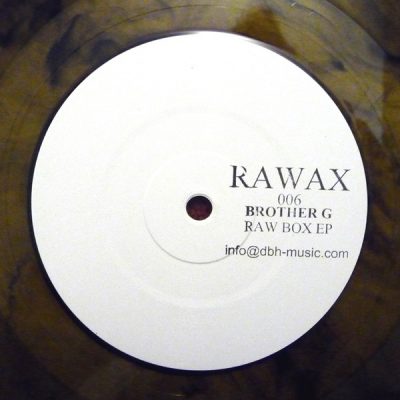
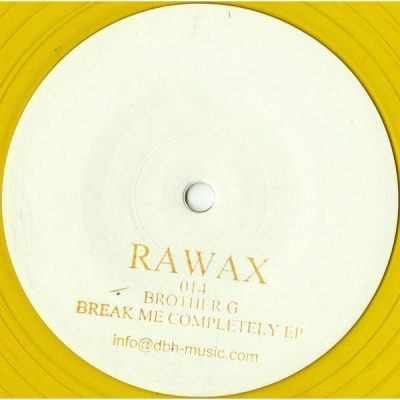
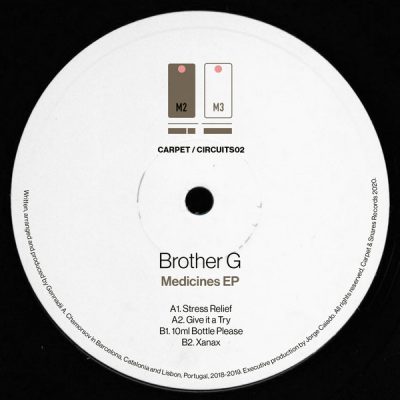
Q: We understand you’re a cat lover – any tips for ensuring cat and vinyl can occupy the same living space in harmony?
BG: Cute question! Probably you can ensure that if you love your kitty unconditionally- by that I mean giving enough attention to him/her. Cats love playing and sharing your company, they also appreciate good food (especially if you buy some chicken/beef/pork/rabbit chops for them from your local market, don’t try to save money buying cheaper parts- take only the best!). Give enough of that and in return, cat will not be jealous to your records or other things you may like!
Q: Now that you are living in Lisbon, what contrasts do you find with the Ukraine, musically and otherwise?
BG: I will describe my own vision, someone might disagree. Portugal and Ukraine are two different worlds. Ukraine is not a developed country, it’s stuck in 90’s era, it’s facing huge social and economical problems comparing to Portugal- especially now, with all these war related issues. I would say most of the society outside Kiev, Kharkov, Odessa and other big cities have fear about their future because of zero opportunities. People get involved in crime and hardcore alcohol/drug addictions. Police and politicians are mega corrupted, you can do whatever you want and avoid punishment, if you have enough money to pay the bribe. Old generation has strong USSR-style background and way of thinking, I would name it “paranoid mentality”- it complicates communication.
All these things create a kind of post- apocalyptic atmosphere that you will probably feel if you go to depressive provinces like Donbass or some areas at west and center. Of course there are things that I like in Ukraine and I don’t find them in Portugal. First of all, my close circle of friends and family who are very missed; also special Ukrainian vibe at the parties which I didn’t catch in any other part of the world. This vibe is hard to explain – it just happens because of the crowd’s attitude, people’s reaction to the track you drop, pure and fresh interest to the music. If you like good quality house, techno or any other kind of electronic music, you will find your way in Kiev or Odessa and you will never forget those nights.
I admire the rise of electronic music scene in Ukraine today – finally it is starting to get well deserved attention worldwide. We see so many hi-skilled producers (not only from Kiev), who already went international and many of undiscovered talents to be found. It’s amazing and I couldn’t imagine this scenario in the 90’s. I think the complications in life and lack of hope force young people to put their creative energy into modern art, where they can freely express themselves… almost the same social circumstances forced electronic music from Detroit to grow so big today – people saw music as their only hope and just did what they felt doing.
Speaking of traditions, Ukrainian traditional music can sound different on the East, Center and West- it’s a big country comparing to Portugal. One trait is dominating for most of the regions- the small 3-4 for voice choir changes with solo, singing for the marriages, burials, big religion- related holidays/rituals etc., the singers use a lot of minor modes, they are accompanied by traditional string instruments aka Bandura, Kobza etc., also wind instruments like Sopilka for example and drums/percussion like Buben, Resheto, Drymba. I am not very familiar with Portuguese musical traditions- first that comes to my mind is Fado (worldwide famous genre), it’s very different but the same time similar in some ways because of the minor mode mood. I can also feel Portuguese musical traditions cross with African/Brazilian/Indonesian and it’s really amazing mixture. Electronic music is popular in both countries, with the same top popular subgenres. The difference between scenes makes their different age: in Portugal everything started earlier- so music lovers have seen a lot, if not all. For Ukraine it still feels fresh and people are enthusiastic about it, especially after proving their capability to the entire world.
I love Portugal and I miss Ukraine in some ways, I wish the world discovers more Ukrainian talents and everything will change to the good for my country!
Follow Brother G on Soundcloud
Buy the Medicines EP at our Webshop
